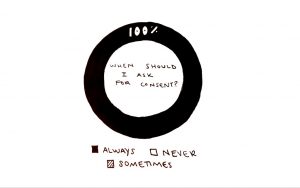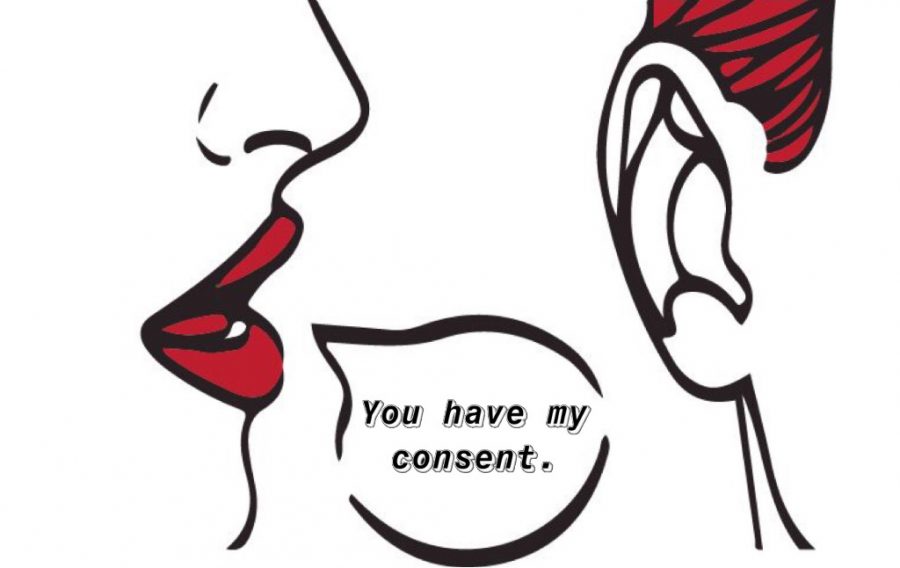By definition, consent is the permission for something to happen or agreement to do something. Permission can be tricky because of the undefined rules of physical and verbal cues given between both partners. When participating in sexual activity, by law, both partners must consent, but what defines consent? How is permission legally given?
“Without consent, sexual activity (including oral sex, genital touching, and vaginal or anal penetration) is sexual assault or rape,” according to Planned Parenthood.

Susan E. Hickman and Charlene L. Muehlenhard, authors of the article “‘By the Semi-Mystical Appearance of a Condom’: How Young Women and Men Communicate Sexual Consent in Heterosexual Situations,” believe that certain physical and verbal acts should be considered with consent in sexual activity. Hickman and Muehlenhard said, “One such issue is whether consent should be defined as a mental act… that is, the verbal or the nonverbal expression of agreement.” They continued, “If consent is defined as a mental act, then one person can never truly know if another has consented. This allows for the possibility of misunderstandings, or claims of misunderstandings, that can lead to sexual assault.”
Senior Brody Lynch shared, “[Consent] varies when two individuals proceed to engage in sexual contact because everyone communicates differently. For example, when “the mood” is apparent between the two and contact begins, they can proceed in sex without verbal consent rather they use physical consent. In other situations they communicate consent with verbal consent before little to no contact begins… sexual intervention varies from couple to couple: physical or verbal consent. Whatever the case may be, have fun!”
In situations where one partner is above the age of 18 while the other partner is a minor, the law indicates the minor cannot give consent to their adult partner themselves, they need a parent or guardian’s permission. A parental consent form can give permission to the parent or guardian’s child to legally engage in certain activities. According to StopItNow, permission from a child or underage teen doesn’t count because “the law recognizes that children are developmentally not able to make decisions about some things, including when to engage in sexual behaviors.” Adults can face jail time and being a registered as a sex offender if they engage in sexual activity with someone younger than the age of consent.
Being under the influence of drugs and alcohol affects decision-making and can also butcher consent. According to the University of Tulsa, “When drugs and alcohol are involved, clear consent cannot be obtained. An intoxicated person cannot give consent.” Planned Parenthood agrees with this statement by saying, “People who are drunk, high, or passed out can’t consent to sex.” According to The Cougar Press’ Sex and Dating Survey, out of 1,004 responses, 212 students have participated in sexual activity while under the influence.
Junior Ashlynn Vaglica stated, “If you’re completely intoxicated, you don’t have total control over your decisions. If you’re a little tipsy then it’s most likely fine, but if your senses are affected then nothing should go too far.”
When trying to obtain consent, some questions you could consider include: “Do you still want to do this?” “Is this okay?” “Are you comfortable with me doing this?” or “What do you want to do next?”









